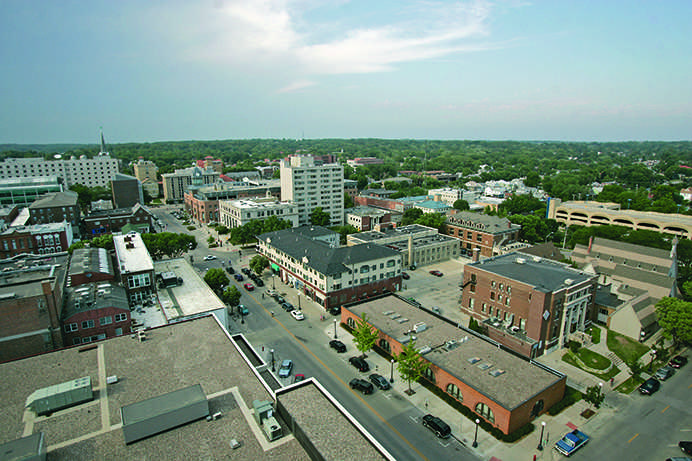A newfound concern with oral hygiene has some clinics scrambling to keep up.
Howard Cowen, the director of the University of Iowa Geriatric Mobile Dental Unit and the Geriatric and Special Needs Clinic, said there has been an increase in recent years among patients who are in long-term assisted living centers and in the special-needs unit.
The mobile dental unit provides comprehensive services through using portable equipment in nursing facilities. On the other hand, the Geriatric and Special Needs Clinic, located in the UI College of Dentistry, supplies inclusive care to medically, physically, and intellectually compromised adults, Cowen said.
“The numbers of patients we see are rising,” he said. “The demand is so high because more people are keeping their teeth and more people are concerned with oral hygiene. This, plus the number of residents at care facilities who are unable to care for themselves, creates a greater need for comprehensive dental care.”
The mobile can serve home-bound people who are not in nursing facilities, but the odds of that happening are very rare. Instead, Cowen said, dental staff try to get people to come to the clinic. However, seeing patients in the clinic can be trying.
“If someone were to call us now to try to set up an appointment, we wouldn’t be able to see them until April,” Cowen said. “We are only taking emergency situations as walk-ins; otherwise, it’s all by appointment.”
David Summers, a UI pre-doctoral student, works at the mobile unit two to three days a week while in the Geriatric and Special Needs Program.
He said he usually sees two to four patients per day, depending on the procedures necessary. At times, the equipment needs to be put in a facility for days to get through all of the residents.
The number of residents concerned with the health of their teeth could have something to do with a rise in awareness, Summers said.
RELATED: Dental school to offer free care for some
“Some patients have a son or a daughter who are aware of how important it is to have a healthy mouth, and through that younger generation, the older generation is learning that it’s something they should be concerned with,” Summers said.
Kari Gerst, the administrator of Lantern Park Specialty Care, said oral hygiene is very important to her residents.
“Dental care is crucial to the long-term residents here, and because some of them are unable to brush their own teeth, it’s nice to have someone to come in and aid them in taking care of them,” she said.
Bad oral hygiene can lead to other health problems, Gerst said, and while most residents were informed of this, a lot of them ignored it.



